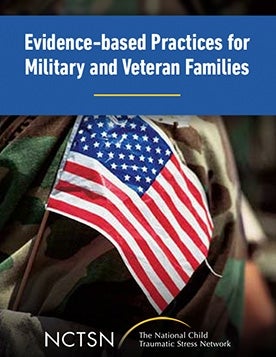
Best Practices in Military-Informed Care: Innovative Models of Care
Shares examples of how organizations can incorporate military-informed procedures and practices, beginning with asking about service member status and affiliations.
The following resources on child trauma were developed by the NCTSN. To find a specific topic or resource, enter keywords in the search box, or filter by resource type, trauma type, language, or audience.

Shares examples of how organizations can incorporate military-informed procedures and practices, beginning with asking about service member status and affiliations.
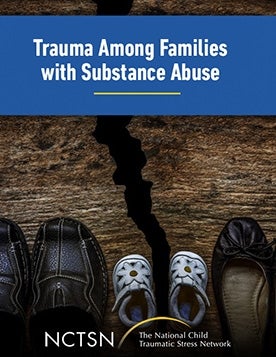
Describes the connections between intimate partner violence and substance use.
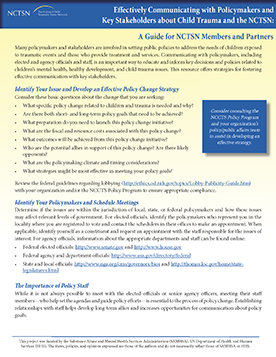
Offers strategies for fostering effective communication with stakeholders.
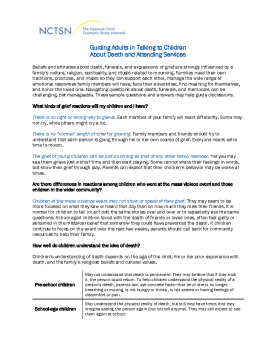
Provides ways to navigate questions about death, funerals, and memorials for children. This fact sheet discusses this challenging, but manageable, task and includes sample questions and answers to help guide discussions.

Provides a short glossary of relevant terms and a chart delineating the continuums of sex, gender, and sexual orientation.
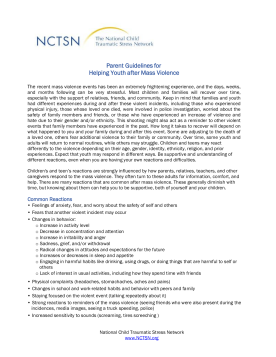
Describes common reactions to mass violence and provides tips for parents on how to care for themselves and their child. Updated March 2021.
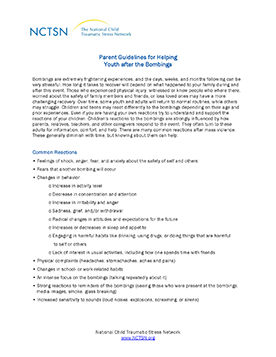
Offers parents guidance on helping their children after a bombing. This fact sheet describes common reactions children may have, how parents can help them, and self-care tips after an event.
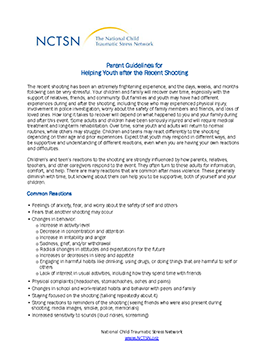
Offers parents guidance on helping their children after a shooting. This fact sheet describes common reactions children may have, how parents can help them, and self-care tips after an event.
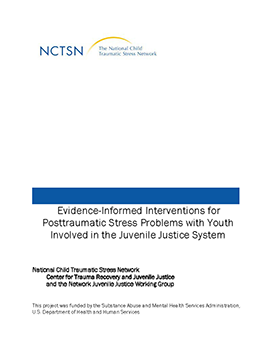
Describes evidence-informed interventions for youth involved in the juvenile justice system.
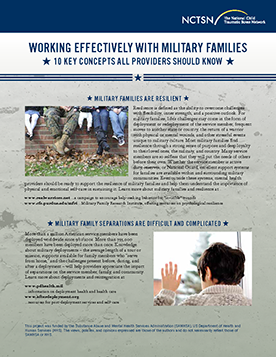
Outlines the top ten things to keep in mind when working with military families. This tip sheet includes information on family separation, stigma about mental health care, access to programs, involving peers and civilian providers and more.
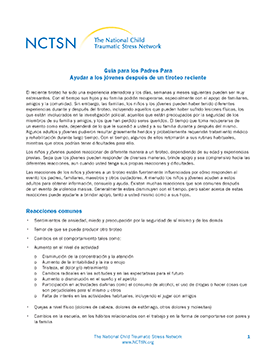
Offers parents guidance on helping their children after a mass violence event. This fact sheet describes common reactions children may have, how you can help them, and taking care of yourself after an event.
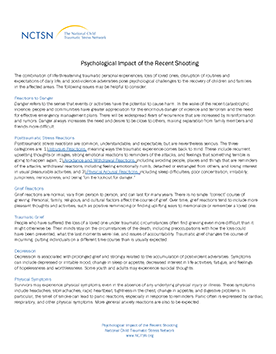
Provides parents and providers with information about the psychological impact of a shooting.